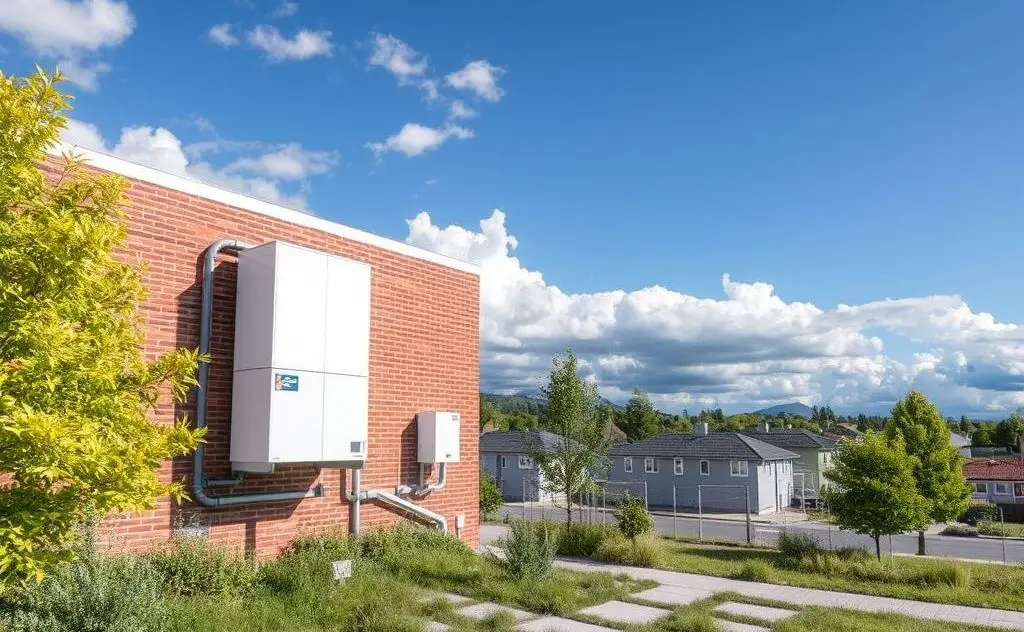Adapting HVAC systems for extreme weather involves enhancing insulation, upgrading equipment, and integrating smart technology for efficient climate control.
As climate change intensifies, HVAC systems face unprecedented challenges from extreme heat waves, polar vortices, and severe storms. Proper adaptation isn’t just about comfort – it’s becoming essential for system survival. This guide reveals practical strategies to fortify your heating and cooling systems against nature’s worst.

Why Extreme Weather Demands HVAC Upgrades
The American Society of Heating, Refrigerating and Air-Conditioning Engineers (ASHRAE) reports HVAC failures during extreme weather have increased 37% since 2015. Three critical factors drive this trend:
- Prolonged heat waves overworking AC compressors
- Subzero temperatures freezing heat pump lines
- Power surges during storms damaging control boards
Heat Wave Readiness
During the 2021 Pacific Northwest heat dome, HVAC service calls spiked 400%. Prepare your system with these measures:
| Component | Upgrade | Benefit |
|---|---|---|
| Condenser | High-temperature refrigerant (R-32) | 25% more efficient at 115°F+ |
| Ductwork | Aeroseal leakage reduction | Prevents 30% cooling loss |
Arctic Blast Protection
When Texas temperatures plunged to -2°F in 2021, built-in gas heaters proved more reliable than heat pumps. Key winterization steps:
- Install crankcase heaters on compressor units
- Wrap exposed pipes with thermostatically controlled heat tape
- Upgrade to cold-climate heat pumps (effective to -22°F)

Smart Technology for Weather Adaptation
Modern HVAC systems now incorporate predictive weather algorithms. The Nest Thermostat’s “Early On” feature, for example, learns how long your home takes to reach desired temperatures and begins heating/cooling before extreme weather hits.
Essential Smart Upgrades
- Weather-aware thermostats (adjust before storms)
- Load-shedding modules (protects during brownouts)
- Remote sensors (monitor unused spaces)
According to U.S. Department of Energy, smart controls can reduce extreme weather energy use by 10-15% annually.
Durability Enhancements
Hurricane-prone areas require specialized HVAC hardening. Florida’s building codes now mandate:
- Galvanized steel mounting frames
- Impact-resistant condenser coils
- Elevated equipment pads (12″ minimum)
Flood Protection
For flood zones, consider these submersible-rated components:
- Corrosion-resistant electrical connections
- Waterproof control boards
- Quick-disconnect refrigerant lines
Energy Resilience Solutions
During California’s rolling blackouts, homes with hybrid HVAC systems maintained comfort. Effective backup options include:
| Backup Type | Runtime | Best For |
|---|---|---|
| Battery-inverter | 8-12 hours | Short outages |
| Propane furnace | Days | Rural areas |
The National Renewable Energy Lab found solar-powered HVAC systems provided uninterrupted cooling during 93% of grid outages.
Maintenance for Extreme Conditions
Alaska’s North Slope operations provide lessons in brutal weather maintenance:
- Monthly filter changes (instead of quarterly)
- Vibration sensors on all moving parts
- Infrared scans of electrical components
Remember: Systems operating in extreme conditions require 30% more frequent servicing than standard recommendations.
